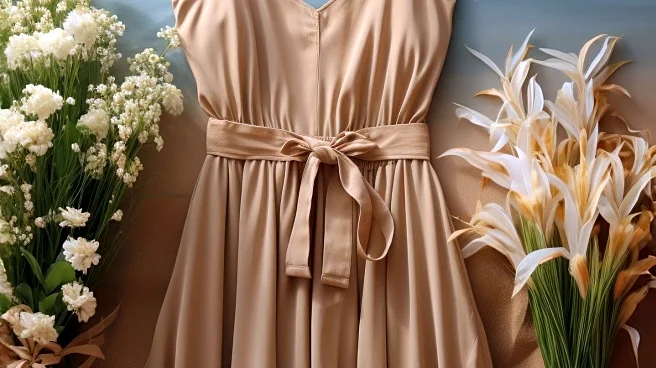What's Happening?
Lillian Hirshleifer, a significant figure in the fashion retail industry, passed away at the age of 97 due to complications from kidney disease. She was instrumental in transforming Hirshleifer's, a specialty store in Manhasset, New York, into a hub for designer brands. Alongside her husband Paul, she helped establish the store as a prominent destination for high-end fashion, leveraging her keen sense of style and business acumen. Hirshleifer's influence extended beyond the store's operations, as she cultivated relationships with major designers and expanded the store's offerings to include a wide range of luxury labels. Her legacy is carried on by her daughters, who continue to run the family business.
Why It's Important?
Lillian Hirshleifer's contributions to the fashion industry have had a lasting impact on retail in Long Island and beyond. By introducing designer shopping to the area, she helped shape consumer expectations and set a standard for luxury retail. Her ability to forge strong relationships with designers ensured that Hirshleifer's remained at the forefront of fashion trends, attracting a clientele that values exclusivity and quality. The store's success under her guidance highlights the importance of visionary leadership in retail, particularly in adapting to changing market demands and maintaining relevance in a competitive industry.
What's Next?
Following Lillian Hirshleifer's passing, her daughters continue to manage Hirshleifer's, maintaining the store's reputation for high-end fashion. The family business is poised to adapt to evolving consumer preferences, potentially expanding its offerings and exploring new partnerships with emerging designers. As the retail landscape shifts, Hirshleifer's may also focus on enhancing its customer experience through personalized services and exclusive events, ensuring that it remains a leader in luxury retail.
Beyond the Headlines
Lillian Hirshleifer's approach to fashion retail underscores the cultural significance of luxury shopping as a form of self-expression and identity. Her emphasis on style and quality reflects broader societal trends towards valuing craftsmanship and individuality in consumer goods. Additionally, her legacy raises questions about the sustainability of luxury fashion and the role of retailers in promoting ethical practices within the industry.









